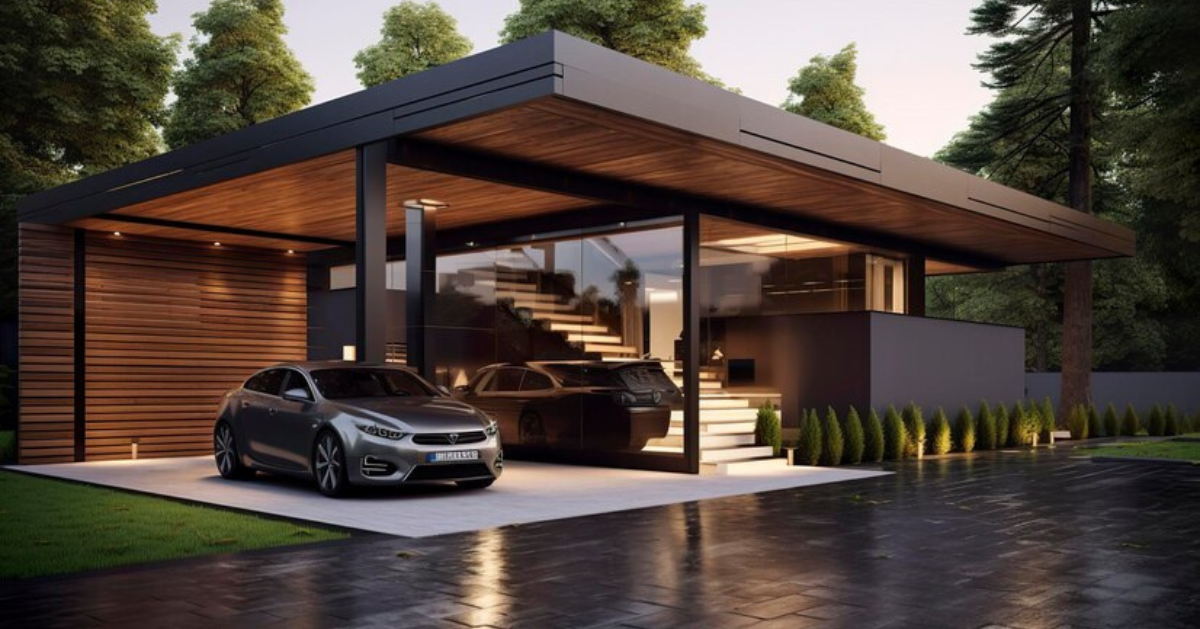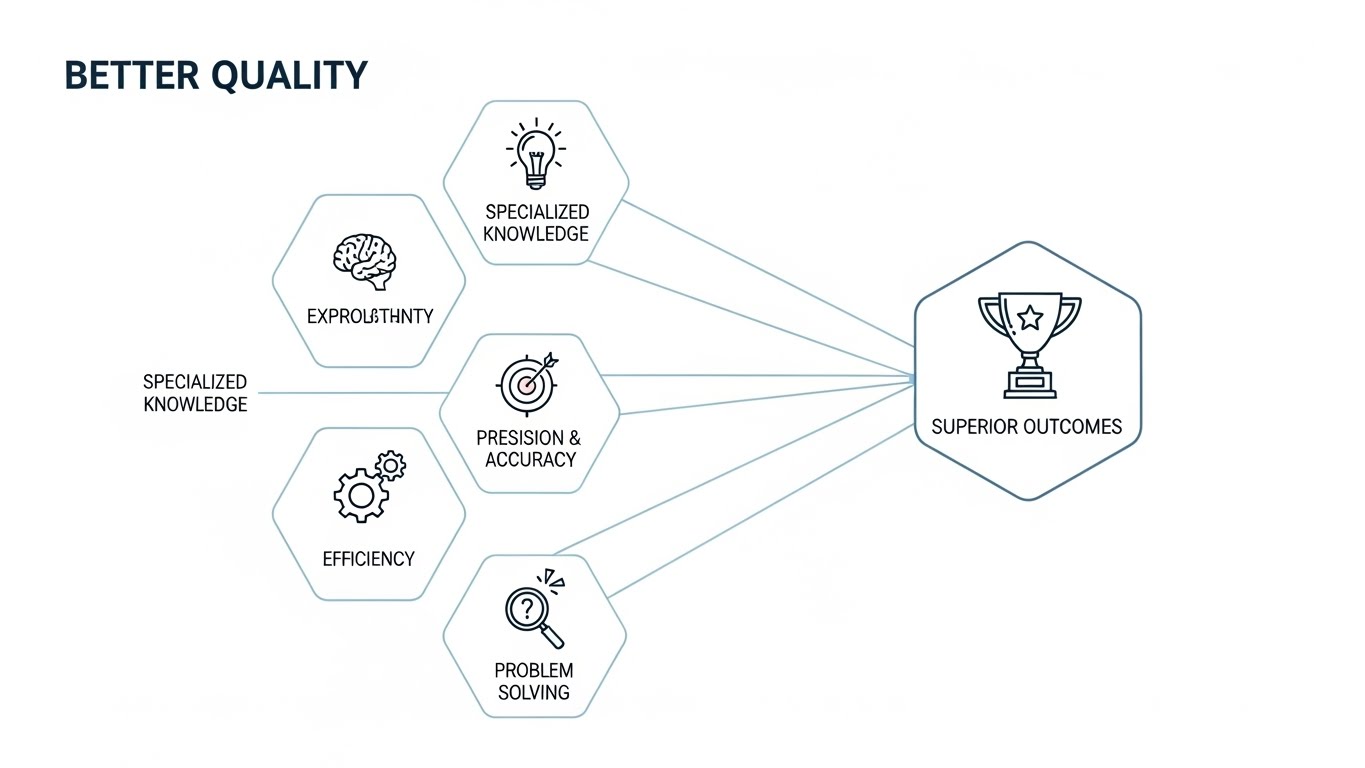A carport is an open-sided structure designed to shelter vehicles, offering protection from the elements like rain, snow, and the sun. Unlike a garage, it lacks fully enclosed walls, making it a more affordable and versatile solution for protecting your car. Many homeowners opt for carports as a cost-effective way to shield their vehicles, boats, or RVs without investing in a full garage.
Benefits of Having a Carport
Having a carport offers numerous advantages. It’s not only a cost-saving solution but also provides convenience and flexibility in terms of design and functionality. Let’s explore some of these benefits:
Affordable Alternative to a Garage
One of the main reasons people choose carports is that they are a significantly more affordable alternative to building a traditional garage. While garages can cost tens of thousands of dollars, a well-constructed carport can be built for a fraction of that price. This makes carports a budget-friendly option, especially for those who want quick and simple coverage for their vehicles.
Protection from Weather Elements
Carports provide excellent protection from the elements. Rain, snow, hail, and harsh UV rays from the sun can cause significant damage to your vehicle over time. By parking under a carport, you can prolong the life of your car’s exterior and interior. The structure helps shield the vehicle’s paint, tires, and even the dashboard from cracking or fading due to sun exposure.
Ease of Installation
Compared to building a garage, installing a carport is much simpler and quicker. Many carport kits come pre-fabricated, making it easy to assemble them with minimal tools and expertise. Some homeowners can even complete the installation themselves, saving on labor costs and installation time. Depending on the complexity of the carport design, it can be erected within just a few hours or days.
Versatility in Use
Carports are not limited to vehicle protection alone. Their open design makes them versatile structures that can serve various purposes. You can use a carport as a covered outdoor space for barbecues, family gatherings, or as a play area for kids. Some people even convert carports into workshops or storage spaces, highlighting their multi-functional potential.
Customizable Designs
Carports come in a wide range of designs, sizes, and materials, allowing homeowners to customize them to their specific needs. Whether you want a standalone structure or one attached to your home, carports can be tailored to suit your preferences. They can be built from materials such as steel, aluminum, wood, or even vinyl. You can also choose between flat roofs, gable roofs, or other styles to complement your home’s aesthetics.
Increased Property Value
While a carport might not add as much value to your property as a full garage would, it can still increase the appeal and marketability of your home. Buyers often view covered parking as a desirable feature, especially in areas with harsh weather conditions. A well-built carport can serve as a bonus for potential homebuyers, offering practical benefits without the higher costs associated with building a garage.
Portability
One unique feature of certain carports is their portability. Unlike garages, which are permanent structures, some carports can be disassembled and moved to a new location. This is particularly useful for renters or homeowners who anticipate moving and want to take their carport with them. This flexibility adds to the overall value and convenience of owning a carport.
Carport Materials
Choosing the right material for your carport is crucial in ensuring its longevity and functionality. Different materials offer varying levels of durability, aesthetic appeal, and maintenance needs.
Steel Carports
Steel is a popular choice for carports because of its strength and durability. Steel carports are resistant to termites, rot, and fire, making them ideal for long-term use. They also require little maintenance and can withstand extreme weather conditions. However, steel carports can be more expensive than other materials, but their longevity often justifies the higher upfront cost.
Aluminum Carports
Aluminum carports are lightweight and resistant to rust, making them another excellent choice for homeowners. They are easier to assemble and install due to their lighter weight, but they may not be as sturdy as steel carports in areas with heavy snow or high winds. Nevertheless, aluminum’s rust-resistant properties make it a low-maintenance option, especially in humid climates.
Wooden Carports
Wooden carports provide a more natural and aesthetically pleasing option, especially for those who want the carport to blend with the overall look of their home. Wood can be customized and painted to match the color of your house, making it a versatile design choice. However, wooden carports require more maintenance, as they are prone to rot, termites, and weather damage. They may also have a shorter lifespan compared to steel or aluminum options.
Attached vs. Freestanding Carports
When deciding on a carport, you have two primary options: attached or freestanding.
An attached carport is built as an extension of your home, providing direct access to the vehicle from inside the house. This design is beneficial in bad weather, as it allows you to walk to your vehicle without being exposed to rain or snow. However, attached carports may require additional planning and permits, depending on local building codes.
Freestanding carports, on the other hand, can be placed anywhere on your property. They offer more flexibility in terms of placement and are easier to relocate if necessary. Freestanding carports are ideal for larger properties or for those who want the carport positioned away from the house.
Carports for Multiple Vehicles
If you have more than one vehicle, you can opt for a multi-car carport. These carports are designed to accommodate two or more cars, providing ample space for multiple vehicles. Multi-car carports are also a good choice for households with boats, trailers, or RVs, as they can be customized to fit larger vehicles.
Permits and Regulations
Before installing a carport, it’s essential to check with local authorities regarding permits and zoning regulations. Depending on your location, there may be specific guidelines on where and how a carport can be constructed. Some areas require building permits, especially for larger or permanent carport structures. Failing to comply with local regulations could result in fines or having to remove the carport.
Conclusion
A carport is a practical, affordable, and flexible solution for protecting your vehicles from the elements. Whether you choose an attached or freestanding design, a carport provides convenience and can be customized to meet your specific needs. From enhancing your property’s value to offering versatility beyond just car protection, a well-built carport is a wise investment for any homeowner.
FAQs
Can a carport be enclosed later?
Yes, many carports can be enclosed later by adding walls, doors, and windows, essentially turning them into a garage.
How long does it take to install a carport?
Installation time depends on the size and complexity of the carport. It can take anywhere from a few hours to a couple of days.
Do I need a permit to build a carport?
Permit requirements vary by location. It’s best to check with your local building authority to determine if a permit is necessary.
What is the best material for a carport?
The best material depends on your needs. Steel is durable and long-lasting, while aluminum is lightweight and rust-resistant. Wood offers a natural look but requires more maintenance.
Can I move a carport to a new location?
Yes, some carports, particularly freestanding ones, can be disassembled and moved to a new location, making them portable and flexible.












